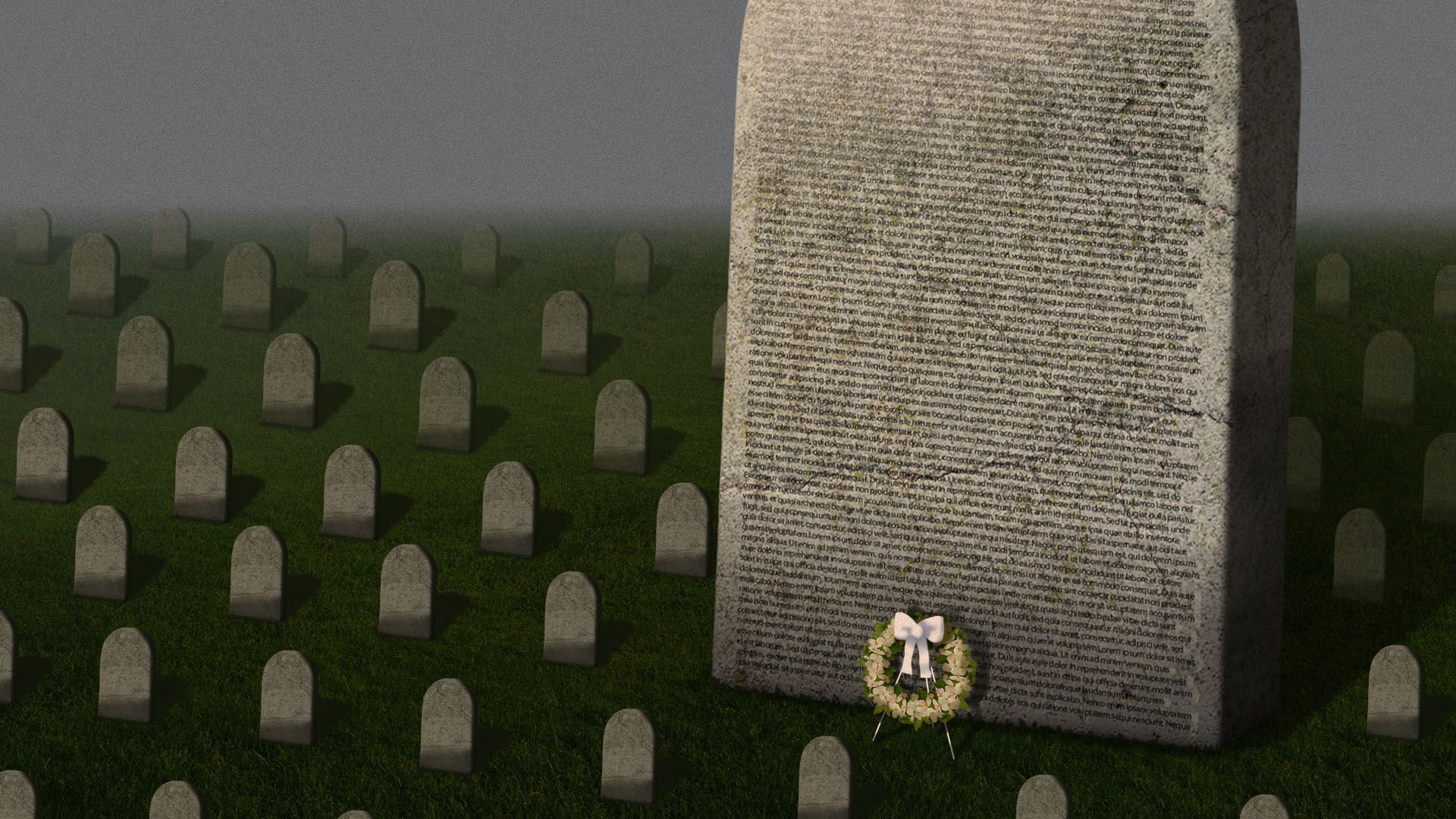Why we're numb to 250,000 coronavirus deaths
Add Axios as your preferred source to
see more of our stories on Google.

Illustration: Sarah Grillo/Axios
The U.S. passed 250,000 confirmed deaths from COVID-19 this week, a figure that is truly vast — too vast, perhaps, for us to comprehend.
Why it matters: The psychic numbing that sets in around mass death saps us of our empathy for victims and discourages us from making the sacrifices needed to control the pandemic, while it hampers our ability to prepare for other rare but potentially catastrophic risks down the road.
By the numbers: The sheer scale of the U.S. death toll from COVID-19 can be felt in the lengths media organizations have gone to try to put the numbers in perspective. 250,000 deaths is:
- Ten times the number of American drivers and passengers who die in car crashes each year, according to CNN.
- More than twice the number of American soldiers who died in World War I, according to NPR.
- Enough to draw a vast hole in America's heartland, if the deaths had all been concentrated in one area, according to the Washington Post.
Even if we try our best to grasp mass death, we inevitably come up against cognitive biases, says Paul Slovic, a psychologist at the University of Oregon who studies human judgment and decision-making.
- The biggest bias is scope neglect: as the scale of deaths and tragedy grows, our own compassion and concern fail to keep pace. As the title of one of Slovic's papers on the subject goes: "The more who die, the less we care."
This is, of course, not rational — by any reasonable, moral calculation, we should find 250,000 deaths commensurately more horrifying than a smaller number. But in practice we don't, almost as if we had a set capacity for empathy and concern that tops out well below the scale of a pandemic.
- It doesn't help that for most of us — save bereaved family members and health care workers on the front line — those deaths go unseen, hidden behind the walls of hospitals and funeral homes.
- In a news culture driven by the visual — and equipped with a psychology moved by identifiable victims over mere numbers — that makes these deaths feel that much more unreal, and for some, that much easier to deny altogether.
- Combined with the habituation to trauma that has set in after months of the pandemic, it shouldn't be surprising that most of us are doing much less to fight the spread of COVID-19 now than we were in the spring, when the number of sick and dead were far lower.
How it works: In a study following the 1994 Rwandan genocide, in which 800,000 people were killed in a matter of months, Slovic and his colleagues asked a group of volunteers to imagine they were in charge of a refugee camp.
- They had to decide whether or not to help 4,500 refugees get access to clean water. Half were told the camp held 250,000 refugees, and half were told it held 11,000.
- The study subjects were much more willing to help if they thought they were assisting 4,500 people out of 11,000, and less willing if it was 4,500 out of 250,000 people. They were reacting to the proportion of those who would be helped, while neglecting the scope of the raw number.
- Relatedly, in a 2014 study, Slovic found a decrease in empathy and a consequent drop in donations to save sick children as the number of victims rose, with effects being seen as soon as one child became two.
What to watch: These same cognitive biases make it difficult for us to fully appreciate chronic threats like climate change, or to prepare for rare but catastrophic risks in the future — like a pandemic.
- Given how hardwired these biases are, our best bet is to try to steer into them, and keep in mind that each of these 250,000 deaths tells an individual story.
- As the survivor Abel Herzberg said of the Holocaust: "There were not six million Jews murdered; there was one murder, six million times."
The bottom line: As the death toll rises, it will take willful effort not to become numb to what's happening. But it is an effort that must be made.
